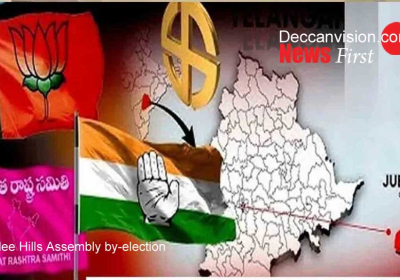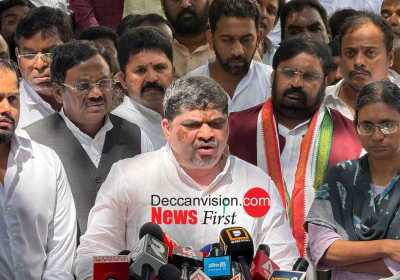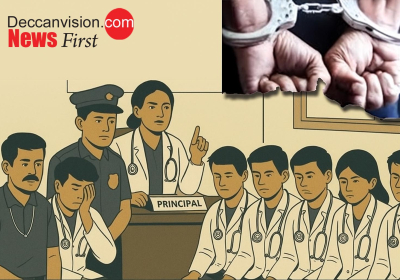Bhu Bharati to Replace Dharani: Telangana Launches Land Reform Pilot on Ambedkar Jayanti

S.S. Reddy | Chief Correspondent | Hyderabad
As Telangana steps into a new era of land reforms, the unveiling of the Bhu Bharati portal on April 14, coinciding with Dr. B.R. Ambedkar Jayanti, marks a significant shift in the state’s governance philosophy — from centralized opacity to decentralized transparency. With this move, the Congress-led government under Chief Minister A. Revanth Reddy signals its intent to rewrite the digital infrastructure of land management, addressing long-standing public grievances stemming from the now-discredited Dharani portal.
From Controversy to Correction
Launched with much fanfare by the previous BRS regime, Dharani promised to streamline land records but instead became synonymous with controversy. Allegations of arbitrary deletions, poor grievance redressal, and lack of transparency plagued its operation. For thousands of farmers, the portal became less a facilitator and more a wall — impersonal, unresponsive, and often inaccessible.
Bhu Bharati, in contrast, is designed to undo this damage. By introducing local-level verification, citizen feedback mechanisms, and multilingual accessibility, the new system promises to return land governance to the grassroots. This is more than just a digital upgrade — it is a structural reform of land administration, anchored in accountability and inclusiveness.
Digital Backbone with a Human Touch
At the heart of Bhu Bharati lies the principle that technology must serve the people, not alienate them. The CM’s insistence on a user-friendly mobile app, integration with Aadhaar, and cyber-security safeguards reflects a welcome shift towards people-centric tech. Special attention is being given to ensure rural usability, a crucial detail that acknowledges the digital divide that the Dharani portal largely ignored.
Awareness sessions, supervised by district collectors, in the three pilot mandals will play a crucial role in ironing out operational issues before the state-wide rollout. The pilot run is not just a trial — it is a litmus test for the state’s capacity to deliver inclusive governance.
Beyond Land — Eyes on Welfare Delivery
Simultaneously, Revanth Reddy has set his sights on revamping welfare schemes, starting with the Indiramma Housing Scheme. He has mandated multi-tier field verification for beneficiaries and proposed strict legal action against fraud. More notably, the proposal to relax building expansion norms and subsidize cement and steel is a thoughtful step towards reducing the financial burden on low-income families, making housing both accessible and sustainable.
A Symbolic and Strategic Launch
Launching the reform on Ambedkar Jayanti is more than symbolic — it aligns with Dr. Ambedkar’s vision of social justice and economic equity. Land remains a critical asset in rural India, and access to clear, tamper-proof records is fundamental to protecting that right. Bhu Bharati, if implemented earnestly, could become a model for other Indian states still grappling with opaque land administration systems.
What Lies Ahead
While the intention is bold and the design promising, the real test of Bhu Bharati will lie in its execution. Will field-level officials be adequately trained? Will grievance redressal be prompt and fair? Will the state withstand pressure from vested interests? Only time — and citizen feedback — will tell.
For now, Telangana has taken a commendable first step. And in doing so, it places the power of ownership, identity, and dignity back into the hands of its people — where it always belonged.








